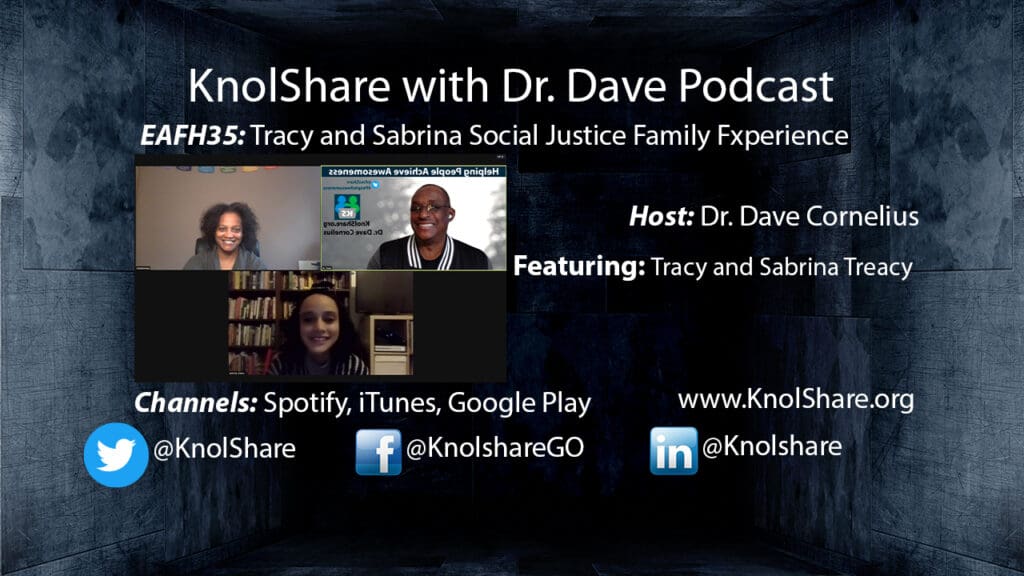EAFH35: Tracy and Sabrina Treacy shares Social Justice in Interracial Family
EAFH35: Tracy and Sabrina Treacy shares Social Justice in Interracial Family

Tracy:
So trauma is something that, how do I explain or talk about that in two seconds? How I think trauma affects how we navigate the world, is through everything we do. And I don't know if we always recognize when trauma has happened. We heard Sabrina a little bit earlier about her childhood trauma experience with being asked, what are you? Besides a human being, what are you? And that said two or three times could equate into a little trauma. That said years and years and years, as a narrative can become a big trauma. And if I could use Sabrina as an example, if that can equate as a big trauma, then that affects how she navigates the world, which is what we talked about a little earlier. Right? It's because of her interests, how she's experienced the world, her interest has been pretty much narrowed or at least targeted to a certain space or a certain area where she feels very passionate about.
And because the trauma affected her in a way that affected her identity, that could go really deep. And there's many ways she could take that. But from what I'm seeing, she's turning that trauma into a positive situation. Right? We don't all have that luxury of having a mom as a therapist and when something happens and I go, all right, let me put my therapist hat on here for a minute or is it all right if I put my therapist hat on? Because sometimes it doesn't need to go on. Right? And being able to help navigate that. So she can come out and at least process to get out on the other side is really important. Most people don't know how to do that or even know how to label a trauma. And then we think about traumas, the big ones as the catastrophes, the physical, the sexual, the verbal and mental abuses. Because physical and sexual abuse are huge traumas.
Whereas if I could say Sabrina's had dings to her soul but those little traumas that keeps ding, ding, ding, ding, dinging, they do become a big trauma. And how do we work through that is really important because that affects how we navigate the world. If we haven't worked through any of those traumas, whether they're small or big, they stay present for us all the time. And whenever something happens that makes us feel like in original foundational trauma, we get activated. Most people call it triggered. I call it activated, because there is nothing triggering it because it's always there. It just gets activated. And how I respond has everything to do with how I went through it in my younger days or whenever it happened. And I'm navigating the world based on a traumatic experience that may not be happening now. Does that make sense?
I want to give some shout out for contributions to Kyanna Brow-Hendrickson for the music that we use.
And this podcast is copyright 2020 by KnolShare and Dr. Dave Cornelius.
So until next time I say, "Be well, stay safe and let's get connected."
